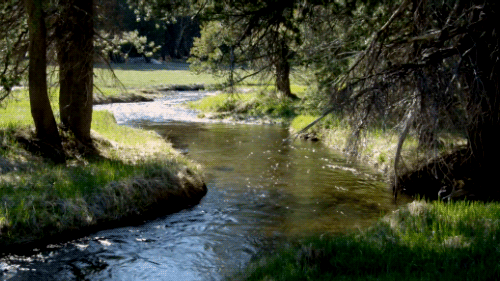The Dhammapada – The Buddha’s Path of Wisdom
Preface
The Dhammapada is the best known and most widely esteemed text in the Pali Tipitaka, the sacred scriptures of Theravada Buddhism. The work is included in the Khuddaka Nikaya (“Minor Collection”) of the Sutta Pitaka, but its popularity has raised it far above the single niche it occupies in the scriptures to the ranks of a world religious classic. Composed in the ancient Pali language, this slim anthology of verses constitutes a perfect compendium of the Buddha’s teaching, comprising between its covers all the essential principles elaborated at length in the forty-odd volumes of the Pali canon.
According to the Theravada Buddhist tradition, each verse in the Dhammapada was originally spoken by the Buddha in response to a particular episode. Accounts of these, along with exegesis of the verses, are preserved in the classic commentary to the work, compiled by the great scholiast Bhadantacariya Buddhaghosa in the fifth century C.E. on the basis or material going back to very ancient times. The contents of the verses, however, transcend the limited and particular circumstances of their origin, reaching out through the ages to various types of people in all the diverse situations of life. For the simple and unsophisticated the Dhammapada is a sympathetic counselor; for the intellectually overburdened its clear and direct teachings inspire humility and reflection; for the earnest seeker it is a perennial source of inspiration and practical instruction. Insights that flashed into the heart of the Buddha have crystallized into these luminous verses of pure wisdom. As profound expressions of practical spirituality, each verse is a guideline to right living. The Buddha unambiguously pointed out that whoever earnestly practices the teachings found in the Dhammapada will taste the bliss of emancipation.
Due to its immense importance, the Dhammapada has been translated into numerous languages. In English alone several translations are available, including editions by such noted scholars as Max Muller and Dr. S. Radhakrishnan. However, when presented from a non-Buddhist frame of reference, the teachings of the Buddha inevitably suffer some distortion. This, in fact, has already happened with our anthology: an unfortunate selection of renderings has sometimes suggested erroneous interpretations, while footnotes have tended to be judgmental.
The present translation was originally written in the late 1950’s. Some years earlier, while consulting a number of English-language editions of the Dhammapada, it was observed that the renderings were either too free and inaccurate or too pedantic, and it was therefore felt that a new translation avoiding these two extremes would serve a valuable purpose. The finished result of that project, presented here, is a humble attempt by a practicing follower of the Buddha to transmit the spirit and content, as well as the language and style, of the original teachings. Continue reading










